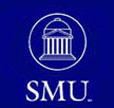|
The Ph.D. in Systems Engineering requires successful completion of the Lyle School of Engineering’s requirements for the Doctor of Philosophy. In addition, specific credit, course, and dissertation requirements
are described below.
Minimum Credit Requirements
- Thirty (30) term credit hours of core systems engineering courses. These hours must come from required graduate-level courses in systems, as specified below.
- Fifteen (15) term credit hours in an approved major that is related to a specific systems engineering focus area and consistent with anticipated doctoral research. No more than six (6) credit hours can be
independent study.
- Nine (9) term credit hours in an approved minor supporting the chosen research area. These hours can come from graduate-level courses in EMIS or other departments. The minor requirement may also be satisfied by
transfer credit subject to SMU’s Transfer of Credit Policy.
- Twenty-four (24) term credit hours of Dissertation. These hours must be taken in residence. The student enrolls for these hours in the course of writing the dissertation.
In addition, at least eighteen (18) term credit hours of the 54 term-credit-hour course work minimum must be at the 8000 level. There must be a minimum of 24 term credit hours of graduate course work and a minimum of
24 term credit hours of dissertation work, none of which have been nor can be applied to any other degree.
Core Courses in Systems Engineering
The ten (10) required courses are:
- EMIS 7301 Systems Engineering Process
- EMIS 7303 Integrated Risk Management
- EMIS 7305 Systems Reliability, Supportability and Availability Analysis
- EMIS 7307 Systems Integration and Test
- EMIS 7312 Software Systems Engineering
- EMIS 7315 Systems Architecture Development
- EMIS 7320 Systems Engineering Leadership
- EMIS 7370 Probability and Statistics for Scientists and Engineers
- EMIS 7377 Design and Analysis of Experiments
- EMIS 8360 Operations Research Models
Systems Engineering Focus Areas
Systems Design and Development
EMIS 7310 Systems Engineering Design
EMIS 7330 Systems Reliability Engineering
EMIS 7335 Human-Systems Integration
EMIS 7347 Critical Infrastructure Protection/Security Systems Engineering
EMIS 8305 Systems Life Cost and Affordability Analysis
EMIS 8307 Systems Test and Evaluation
EMIS 7369 Reliability Engineering
EMIS 8310 Collective Systems Design
EMIS 8315 Innovation Systems Design
EMIS 8340 Systems Engineering Software Tools
EMIS 8342 Six Sigma Systems Engineering
CSE 7316 Software Requirements
CSE 7319 Software Architecture and Design
CSE 7347 XML and the Enterprise
CSE 8314 Software Metrics and Quality Engineering
CSE 8317 Software Reliability and Safety
CSE 8340 Advanced Topics in Software Engineering
ME 7350 Design for Manufacturability and Concurrent Engineering
Leadership and Management
EMIS 7318 Systems Engineering Planning and Management
EMIS 7365 Program and Project Management
EMIS 8364 Engineering Management
EMIS 8368 Enterprise Leadership
CSE 7315 Software Project Planning and Management
ME 7303 Organizational Leadership
ME 7368 Project and Risk Management
ME 7369 Innovation Management
Logistics and Supply Systems
EMIS 7340 Logistics Systems Engineering
EMIS 7362 Production Systems Engineering
EMIS 8361 Economic Decision Analysis
EMIS 8348 Supply Chain Systems Engineering
ENCE 7371 Facility Financial and Asset Management
ENCE 8379 Analysis of Transportation Systems
Systems Analysis and Optimization
EMIS 7361 Computer Simulation Techniques
EMIS 7362 Production Systems Engineering
EMIS 8361 Economic Decision Analysis
EMIS 8371 Linear Programming
EMIS 8372 Queuing Theory
EMIS 8374 Network Flows
EMIS 8373 Integer Programming
EMIS 8378 Optimization Models for Decision Support
EMIS 8380 Mathematics for Optimization
Dissertation
The most clearly distinguishing characteristic of a program leading to the Ph.D. degree is the requirement that the candidate write a dissertation embodying the results of a significant and original investigation.
The dissertation is expected to be a mature and competent piece of writing and must make a real and novel contribution to the engineering or applied science discipline. The work it reports may be basic scientific
research, engineering research, or creative design. The progress of the student toward the Ph.D. degree is monitored closely by the thesis advisor and the supervisory committee, with an annual report to the
department chair.
The dissertation format must follow the SMU Guidelines for Preparation of Theses and Dissertations. Each student is also expected to submit articles for publication in scholarly journals and conferences appropriate
to the field of research.
|



